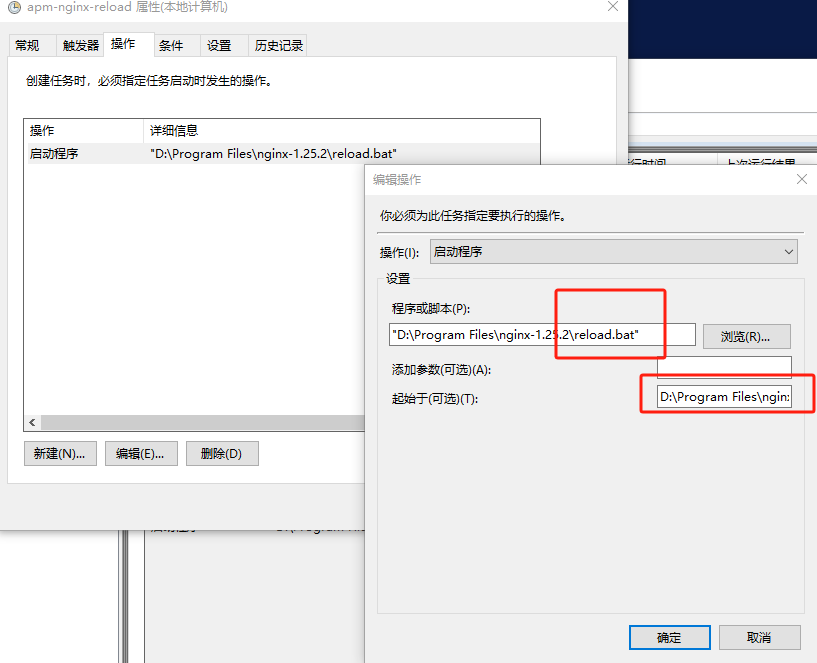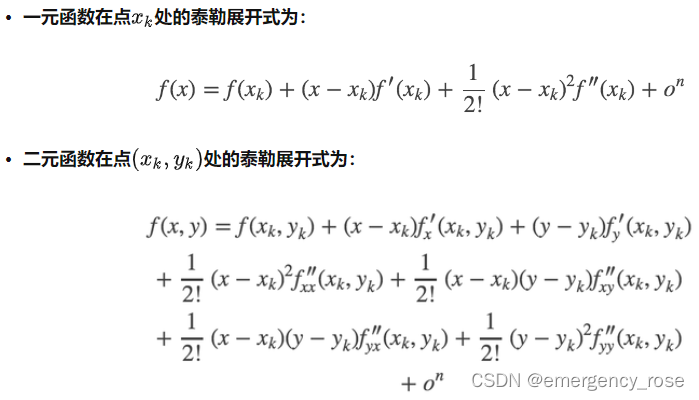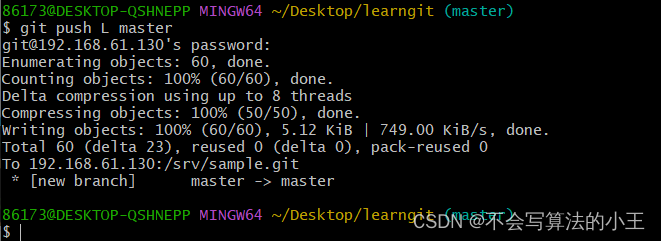介绍
小程序>微信小程序中,很多 API都是异步的,无法同步处理。可以使用高级封装,通过async await方法来同步处理。
方法
- 在小程序右上角的
详情里选择本地设置, 勾选ES6转ES5,如下所示:

- 由于
Async Await是ES7语法,所以在小程序里勾选es6转ES5会报错:
ReferenceError: regeneratorRuntime is not defined;所以这里就需要下载facebook的regenerator库中的文件;
github下载地址为:https://github.com/facebook/regenerator/blob/5703a79746fffc152600fdcef46ba9230671025a/packages/regenerator-runtime/runtime.js;
下载地址慢,具体文件内容如下:
/**
* Copyright (c) 2014-present, Facebook, Inc.
*
* This source code is licensed under the MIT license found in the
* LICENSE file in the root directory of this source tree.
*/
var regeneratorRuntime = (function (exports) {
"use strict";
var Op = Object.prototype;
var hasOwn = Op.hasOwnProperty;
var undefined; // More compressible than void 0.
var $Symbol = typeof Symbol === "function" ? Symbol : {};
var iteratorSymbol = $Symbol.iterator || "@@iterator";
var asyncIteratorSymbol = $Symbol.asyncIterator || "@@asyncIterator";
var toStringTagSymbol = $Symbol.toStringTag || "@@toStringTag";
function wrap(innerFn, outerFn, self, tryLocsList) {
// If outerFn provided and outerFn.prototype is a Generator, then outerFn.prototype instanceof Generator.
var protoGenerator = outerFn && outerFn.prototype instanceof Generator ? outerFn : Generator;
var generator = Object.create(protoGenerator.prototype);
var context = new Context(tryLocsList || []);
// The ._invoke method unifies the implementations of the .next,
// .throw, and .return methods.
generator._invoke = makeInvokeMethod(innerFn, self, context);
return generator;
}
exports.wrap = wrap;
// Try/catch helper to minimize deoptimizations. Returns a completion
// record like context.tryEntries[i].completion. This interface could
// have been (and was previously) designed to take a closure to be
// invoked without arguments, but in all the cases we care about we
// already have an existing method we want to call, so there's no need
// to create a new function object. We can even get away with assuming
// the method takes exactly one argument, since that happens to be true
// in every case, so we don't have to touch the arguments object. The
// only additional allocation required is the completion record, which
// has a stable shape and so hopefully should be cheap to allocate.
function tryCatch(fn, obj, arg) {
try {
return { type: "normal", arg: fn.call(obj, arg) };
} catch (err) {
return { type: "throw", arg: err };
}
}
var GenStateSuspendedStart = "suspendedStart";
var GenStateSuspendedYield = "suspendedYield";
var GenStateExecuting = "executing";
var GenStateCompleted = "completed";
// Returning this object from the innerFn has the same effect as
// breaking out of the dispatch switch statement.
var ContinueSentinel = {};
// Dummy constructor functions that we use as the .constructor and
// .constructor.prototype properties for functions that return Generator
// objects. For full spec compliance, you may wish to configure your
// minifier not to mangle the names of these two functions.
function Generator() {}
function GeneratorFunction() {}
function GeneratorFunctionPrototype() {}
// This is a polyfill for %IteratorPrototype% for environments that
// don't natively support it.
var IteratorPrototype = {};
IteratorPrototype[iteratorSymbol] = function () {
return this;
};
var getProto = Object.getPrototypeOf;
var NativeIteratorPrototype = getProto && getProto(getProto(values([])));
if (NativeIteratorPrototype &&
NativeIteratorPrototype !== Op &&
hasOwn.call(NativeIteratorPrototype, iteratorSymbol)) {
// This environment has a native %IteratorPrototype%; use it instead
// of the polyfill.
IteratorPrototype = NativeIteratorPrototype;
}
var Gp = GeneratorFunctionPrototype.prototype =
Generator.prototype = Object.create(IteratorPrototype);
GeneratorFunction.prototype = Gp.constructor = GeneratorFunctionPrototype;
GeneratorFunctionPrototype.constructor = GeneratorFunction;
GeneratorFunctionPrototype[toStringTagSymbol] =
GeneratorFunction.displayName = "GeneratorFunction";
// Helper for defining the .next, .throw, and .return methods of the
// Iterator interface in terms of a single ._invoke method.
function defineIteratorMethods(prototype) {
["next", "throw", "return"].forEach(function(method) {
prototype[method] = function(arg) {
return this._invoke(method, arg);
};
});
}
exports.isGeneratorFunction = function(genFun) {
var ctor = typeof genFun === "function" && genFun.constructor;
return ctor
? ctor === GeneratorFunction ||
// For the native GeneratorFunction constructor, the best we can
// do is to check its .name property.
(ctor.displayName || ctor.name) === "GeneratorFunction"
: false;
};
exports.mark = function(genFun) {
if (Object.setPrototypeOf) {
Object.setPrototypeOf(genFun, GeneratorFunctionPrototype);
} else {
genFun.__proto__ = GeneratorFunctionPrototype;
if (!(toStringTagSymbol in genFun)) {
genFun[toStringTagSymbol] = "GeneratorFunction";
}
}
genFun.prototype = Object.create(Gp);
return genFun;
};
// Within the body of any async function, `await x` is transformed to
// `yield regeneratorRuntime.awrap(x)`, so that the runtime can test
// `hasOwn.call(value, "__await")` to determine if the yielded value is
// meant to be awaited.
exports.awrap = function(arg) {
return { __await: arg };
};
function AsyncIterator(generator) {
function invoke(method, arg, resolve, reject) {
var record = tryCatch(generator[method], generator, arg);
if (record.type === "throw") {
reject(record.arg);
} else {
var result = record.arg;
var value = result.value;
if (value &&
typeof value === "object" &&
hasOwn.call(value, "__await")) {
return Promise.resolve(value.__await).then(function(value) {
invoke("next", value, resolve, reject);
}, function(err) {
invoke("throw", err, resolve, reject);
});
}
return Promise.resolve(value).then(function(unwrapped) {
// When a yielded Promise is resolved, its final value becomes
// the .value of the Promise<{value,done}> result for the
// current iteration.
result.value = unwrapped;
resolve(result);
}, function(error) {
// If a rejected Promise was yielded, throw the rejection back
// into the async generator function so it can be handled there.
return invoke("throw", error, resolve, reject);
});
}
}
var previousPromise;
function enqueue(method, arg) {
function callInvokeWithMethodAndArg() {
return new Promise(function(resolve, reject) {
invoke(method, arg, resolve, reject);
});
}
return previousPromise =
// If enqueue has been called before, then we want to wait until
// all previous Promises have been resolved before calling invoke,
// so that results are always delivered in the correct order. If
// enqueue has not been called before, then it is important to
// call invoke immediately, without waiting on a callback to fire,
// so that the async generator function has the opportunity to do
// any necessary setup in a predictable way. This predictability
// is why the Promise constructor synchronously invokes its
// executor callback, and why async functions synchronously
// execute code before the first await. Since we implement simple
// async functions in terms of async generators, it is especially
// important to get this right, even though it requires care.
previousPromise ? previousPromise.then(
callInvokeWithMethodAndArg,
// Avoid propagating failures to Promises returned by later
// invocations of the iterator.
callInvokeWithMethodAndArg
) : callInvokeWithMethodAndArg();
}
// Define the unified helper method that is used to implement .next,
// .throw, and .return (see defineIteratorMethods).
this._invoke = enqueue;
}
defineIteratorMethods(AsyncIterator.prototype);
AsyncIterator.prototype[asyncIteratorSymbol] = function () {
return this;
};
exports.AsyncIterator = AsyncIterator;
// Note that simple async functions are implemented on top of
// AsyncIterator objects; they just return a Promise for the value of
// the final result produced by the iterator.
exports.async = function(innerFn, outerFn, self, tryLocsList) {
var iter = new AsyncIterator(
wrap(innerFn, outerFn, self, tryLocsList)
);
return exports.isGeneratorFunction(outerFn)
? iter // If outerFn is a generator, return the full iterator.
: iter.next().then(function(result) {
return result.done ? result.value : iter.next();
});
};
function makeInvokeMethod(innerFn, self, context) {
var state = GenStateSuspendedStart;
return function invoke(method, arg) {
if (state === GenStateExecuting) {
throw new Error("Generator is already running");
}
if (state === GenStateCompleted) {
if (method === "throw") {
throw arg;
}
// Be forgiving, per 25.3.3.3.3 of the spec:
// https://people.mozilla.org/~jorendorff/es6-draft.html#sec-generatorresume
return doneResult();
}
context.method = method;
context.arg = arg;
while (true) {
var delegate = context.delegate;
if (delegate) {
var delegateResult = maybeInvokeDelegate(delegate, context);
if (delegateResult) {
if (delegateResult === ContinueSentinel) continue;
return delegateResult;
}
}
if (context.method === "next") {
// Setting context._sent for legacy support of Babel's
// function.sent implementation.
context.sent = context._sent = context.arg;
} else if (context.method === "throw") {
if (state === GenStateSuspendedStart) {
state = GenStateCompleted;
throw context.arg;
}
context.dispatchException(context.arg);
} else if (context.method === "return") {
context.abrupt("return", context.arg);
}
state = GenStateExecuting;
var record = tryCatch(innerFn, self, context);
if (record.type === "normal") {
// If an exception is thrown from innerFn, we leave state ===
// GenStateExecuting and loop back for another invocation.
state = context.done
? GenStateCompleted
: GenStateSuspendedYield;
if (record.arg === ContinueSentinel) {
continue;
}
return {
value: record.arg,
done: context.done
};
} else if (record.type === "throw") {
state = GenStateCompleted;
// Dispatch the exception by looping back around to the
// context.dispatchException(context.arg) call above.
context.method = "throw";
context.arg = record.arg;
}
}
};
}
// Call delegate.iterator[context.method](context.arg) and handle the
// result, either by returning a { value, done } result from the
// delegate iterator, or by modifying context.method and context.arg,
// setting context.delegate to null, and returning the ContinueSentinel.
function maybeInvokeDelegate(delegate, context) {
var method = delegate.iterator[context.method];
if (method === undefined) {
// A .throw or .return when the delegate iterator has no .throw
// method always terminates the yield* loop.
context.delegate = null;
if (context.method === "throw") {
if (delegate.iterator.return) {
// If the delegate iterator has a return method, give it a
// chance to clean up.
context.method = "return";
context.arg = undefined;
maybeInvokeDelegate(delegate, context);
if (context.method === "throw") {
// If maybeInvokeDelegate(context) changed context.method from
// "return" to "throw", let that override the TypeError below.
return ContinueSentinel;
}
}
context.method = "throw";
context.arg = new TypeError(
"The iterator does not provide a 'throw' method");
}
return ContinueSentinel;
}
var record = tryCatch(method, delegate.iterator, context.arg);
if (record.type === "throw") {
context.method = "throw";
context.arg = record.arg;
context.delegate = null;
return ContinueSentinel;
}
var info = record.arg;
if (! info) {
context.method = "throw";
context.arg = new TypeError("iterator result is not an object");
context.delegate = null;
return ContinueSentinel;
}
if (info.done) {
// Assign the result of the finished delegate to the temporary
// variable specified by delegate.resultName (see delegateYield).
context[delegate.resultName] = info.value;
// Resume execution at the desired location (see delegateYield).
context.next = delegate.nextLoc;
// If context.method was "throw" but the delegate handled the
// exception, let the outer generator proceed normally. If
// context.method was "next", forget context.arg since it has been
// "consumed" by the delegate iterator. If context.method was
// "return", allow the original .return call to continue in the
// outer generator.
if (context.method !== "return") {
context.method = "next";
context.arg = undefined;
}
} else {
// Re-yield the result returned by the delegate method.
return info;
}
// The delegate iterator is finished, so forget it and continue with
// the outer generator.
context.delegate = null;
return ContinueSentinel;
}
// Define Generator.prototype.{next,throw,return} in terms of the
// unified ._invoke helper method.
defineIteratorMethods(Gp);
Gp[toStringTagSymbol] = "Generator";
// A Generator should always return itself as the iterator object when the
// @@iterator function is called on it. Some browsers' implementations of the
// iterator prototype chain incorrectly implement this, causing the Generator
// object to not be returned from this call. This ensures that doesn't happen.
// See https://github.com/facebook/regenerator/issues/274 for more details.
Gp[iteratorSymbol] = function() {
return this;
};
Gp.toString = function() {
return "[object Generator]";
};
function pushTryEntry(locs) {
var entry = { tryLoc: locs[0] };
if (1 in locs) {
entry.catchLoc = locs[1];
}
if (2 in locs) {
entry.finallyLoc = locs[2];
entry.afterLoc = locs[3];
}
this.tryEntries.push(entry);
}
function resetTryEntry(entry) {
var record = entry.completion || {};
record.type = "normal";
delete record.arg;
entry.completion = record;
}
function Context(tryLocsList) {
// The root entry object (effectively a try statement without a catch
// or a finally block) gives us a place to store values thrown from
// locations where there is no enclosing try statement.
this.tryEntries = [{ tryLoc: "root" }];
tryLocsList.forEach(pushTryEntry, this);
this.reset(true);
}
exports.keys = function(object) {
var keys = [];
for (var key in object) {
keys.push(key);
}
keys.reverse();
// Rather than returning an object with a next method, we keep
// things simple and return the next function itself.
return function next() {
while (keys.length) {
var key = keys.pop();
if (key in object) {
next.value = key;
next.done = false;
return next;
}
}
// To avoid creating an additional object, we just hang the .value
// and .done properties off the next function object itself. This
// also ensures that the minifier will not anonymize the function.
next.done = true;
return next;
};
};
function values(iterable) {
if (iterable) {
var iteratorMethod = iterable[iteratorSymbol];
if (iteratorMethod) {
return iteratorMethod.call(iterable);
}
if (typeof iterable.next === "function") {
return iterable;
}
if (!isNaN(iterable.length)) {
var i = -1, next = function next() {
while (++i < iterable.length) {
if (hasOwn.call(iterable, i)) {
next.value = iterable[i];
next.done = false;
return next;
}
}
next.value = undefined;
next.done = true;
return next;
};
return next.next = next;
}
}
// Return an iterator with no values.
return { next: doneResult };
}
exports.values = values;
function doneResult() {
return { value: undefined, done: true };
}
Context.prototype = {
constructor: Context,
reset: function(skipTempReset) {
this.prev = 0;
this.next = 0;
// Resetting context._sent for legacy support of Babel's
// function.sent implementation.
this.sent = this._sent = undefined;
this.done = false;
this.delegate = null;
this.method = "next";
this.arg = undefined;
this.tryEntries.forEach(resetTryEntry);
if (!skipTempReset) {
for (var name in this) {
// Not sure about the optimal order of these conditions:
if (name.charAt(0) === "t" &&
hasOwn.call(this, name) &&
!isNaN(+name.slice(1))) {
this[name] = undefined;
}
}
}
},
stop: function() {
this.done = true;
var rootEntry = this.tryEntries[0];
var rootRecord = rootEntry.completion;
if (rootRecord.type === "throw") {
throw rootRecord.arg;
}
return this.rval;
},
dispatchException: function(exception) {
if (this.done) {
throw exception;
}
var context = this;
function handle(loc, caught) {
record.type = "throw";
record.arg = exception;
context.next = loc;
if (caught) {
// If the dispatched exception was caught by a catch block,
// then let that catch block handle the exception normally.
context.method = "next";
context.arg = undefined;
}
return !! caught;
}
for (var i = this.tryEntries.length - 1; i >= 0; --i) {
var entry = this.tryEntries[i];
var record = entry.completion;
if (entry.tryLoc === "root") {
// Exception thrown outside of any try block that could handle
// it, so set the completion value of the entire function to
// throw the exception.
return handle("end");
}
if (entry.tryLoc <= this.prev) {
var hasCatch = hasOwn.call(entry, "catchLoc");
var hasFinally = hasOwn.call(entry, "finallyLoc");
if (hasCatch && hasFinally) {
if (this.prev < entry.catchLoc) {
return handle(entry.catchLoc, true);
} else if (this.prev < entry.finallyLoc) {
return handle(entry.finallyLoc);
}
} else if (hasCatch) {
if (this.prev < entry.catchLoc) {
return handle(entry.catchLoc, true);
}
} else if (hasFinally) {
if (this.prev < entry.finallyLoc) {
return handle(entry.finallyLoc);
}
} else {
throw new Error("try statement without catch or finally");
}
}
}
},
abrupt: function(type, arg) {
for (var i = this.tryEntries.length - 1; i >= 0; --i) {
var entry = this.tryEntries[i];
if (entry.tryLoc <= this.prev &&
hasOwn.call(entry, "finallyLoc") &&
this.prev < entry.finallyLoc) {
var finallyEntry = entry;
break;
}
}
if (finallyEntry &&
(type === "break" ||
type === "continue") &&
finallyEntry.tryLoc <= arg &&
arg <= finallyEntry.finallyLoc) {
// Ignore the finally entry if control is not jumping to a
// location outside the try/catch block.
finallyEntry = null;
}
var record = finallyEntry ? finallyEntry.completion : {};
record.type = type;
record.arg = arg;
if (finallyEntry) {
this.method = "next";
this.next = finallyEntry.finallyLoc;
return ContinueSentinel;
}
return this.complete(record);
},
complete: function(record, afterLoc) {
if (record.type === "throw") {
throw record.arg;
}
if (record.type === "break" ||
record.type === "continue") {
this.next = record.arg;
} else if (record.type === "return") {
this.rval = this.arg = record.arg;
this.method = "return";
this.next = "end";
} else if (record.type === "normal" && afterLoc) {
this.next = afterLoc;
}
return ContinueSentinel;
},
finish: function(finallyLoc) {
for (var i = this.tryEntries.length - 1; i >= 0; --i) {
var entry = this.tryEntries[i];
if (entry.finallyLoc === finallyLoc) {
this.complete(entry.completion, entry.afterLoc);
resetTryEntry(entry);
return ContinueSentinel;
}
}
},
"catch": function(tryLoc) {
for (var i = this.tryEntries.length - 1; i >= 0; --i) {
var entry = this.tryEntries[i];
if (entry.tryLoc === tryLoc) {
var record = entry.completion;
if (record.type === "throw") {
var thrown = record.arg;
resetTryEntry(entry);
}
return thrown;
}
}
// The context.catch method must only be called with a location
// argument that corresponds to a known catch block.
throw new Error("illegal catch attempt");
},
delegateYield: function(iterable, resultName, nextLoc) {
this.delegate = {
iterator: values(iterable),
resultName: resultName,
nextLoc: nextLoc
};
if (this.method === "next") {
// Deliberately forget the last sent value so that we don't
// accidentally pass it on to the delegate.
this.arg = undefined;
}
return ContinueSentinel;
}
};
// Regardless of whether this script is executing as a CommonJS module
// or not, return the runtime object so that we can declare the variable
// regeneratorRuntime in the outer scope, which allows this module to be
// injected easily by `bin/regenerator --include-runtime script.js`.
return exports;
}(
// If this script is executing as a CommonJS module, use module.exports
// as the regeneratorRuntime namespace. Otherwise create a new empty
// object. Either way, the resulting object will be used to initialize
// the regeneratorRuntime variable at the top of this file.
typeof module === "object" ? module.exports : {}
));
- 在小程序根目录新建文件夹
lib/runtime/runtime.js,将代码拷贝进去即可。 - 在每个需要使用
async await语法的页面js文件中,都引入(不能全局引入),只需要引入,不需要调用。如下所示:
import regeneratorRuntime from '../../lib/runtime/runtime';
- 在项目根目录下新建一个名为
request的文件夹, 再在该文件夹下新建名为requst的js文件,在该文件夹对请求进行封装,如下所示:
// post请求
export const getPostData = (url,params) => {
return new Promise((resolve,reject) => {
// 异步请求
wx.request({
...params,
url: url,
methods: "post",
success:(res) =>{
resolve(res.data);
},
fail:(err) => {
reject(err);
}
})
})
}
// get请求
export const getGetData = (url,params) => {
return new Promise((resolve,reject) => {
// 异步请求
wx.request({
...params,
url: url,
methods: "get",
success:(res) =>{
resolve(res.data);
},
fail:(err) => {
reject(err);
}
})
})
}
export default(
getPostData ,
getGetData
}
然后就可以正常的使用 async awat 来处理异步请求了。如下所示:
import regeneratorRuntime from '../../lib/runtime/runtime
// 引入封装好的请求方法
const getPostData = require('../../request/request.js');
Page({
data() {
list: [], // 列表数据
},
onLoad() {
this.getData();
}
asycn getList(){
const res = await getPostData.getPostData(url,params);
this.setData({
list: res?.list;
})
}
})






